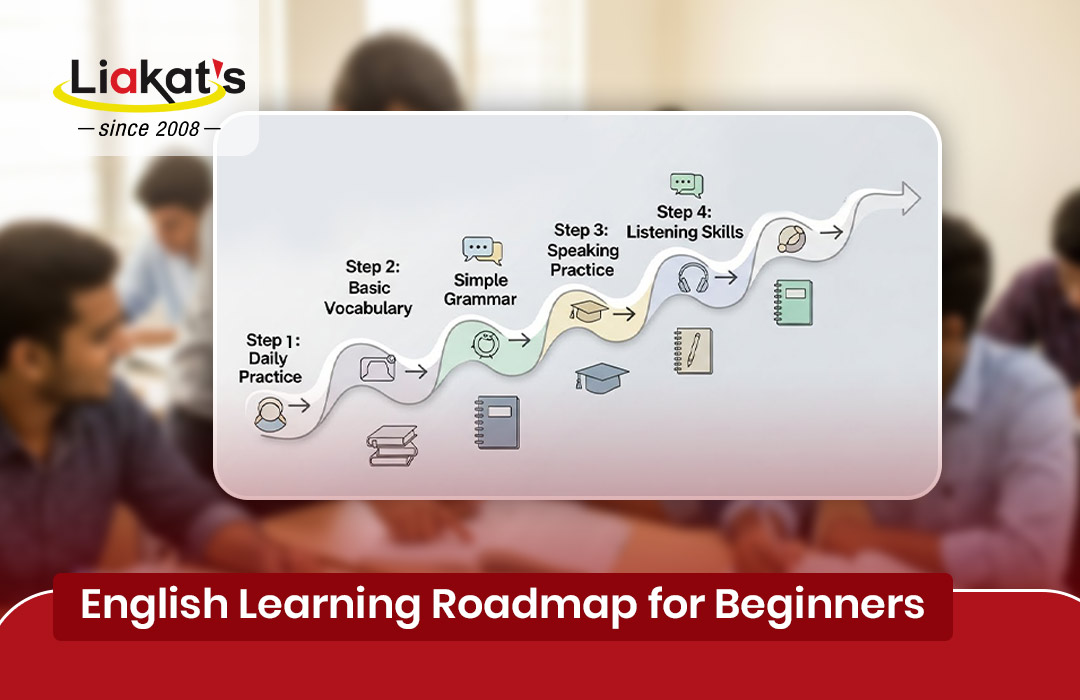[et_pb_section fb_built=”1″ theme_builder_area=”post_content” _builder_version=”4.17.4″ _module_preset=”default”][et_pb_row _builder_version=”4.17.4″ _module_preset=”default” theme_builder_area=”post_content”][et_pb_column _builder_version=”4.17.4″ _module_preset=”default” type=”4_4″ theme_builder_area=”post_content”][et_pb_text _builder_version=”4.17.4″ _module_preset=”default” theme_builder_area=”post_content” hover_enabled=”0″ sticky_enabled=”0″]
For Bangladeshi students aspiring to study abroad, enrolling in an IELTS preparation course is a critical first step toward achieving their academic dreams. Success in the IELTS exam opens doors to universities in countries like the UK, Australia, Canada, and the USA. Whether you are targeting the IELTS Academic or General Training test, a strong score demonstrates your proficiency in English and prepares you for the academic challenges ahead. A well-structured IELTS course, especially an online course, provides the guidance and flexibility needed for efficient learning. These courses focus on enhancing language skills through comprehensive test preparation, including practice for key sections like IELTS speaking, writing, reading, and listening.
Additionally, students benefit from IELTS practice tests and tailored strategies to improve their exam techniques. By familiarizing themselves with the test format and understanding the expectations of test day, students can build confidence and maximize their performance. Many courses also include insights into how to book the IELTS test at a test center and offer advice for efficient time management. Whether you choose an English course or a specialized Cambridge preparation program, the right resources ensure test takers are well-prepared to excel on their journey to studying abroad.
Understanding the IELTS Exam
Before diving into preparation strategies, it’s crucial to understand the IELTS exam format. The IELTS is divided into four sections:
- Listening (30 minutes): You’ll listen to four audio recordings and answer questions about each recording.
- Reading (60 minutes): You’ll read three passages and answer questions based on them.
- Writing (60 minutes): You’ll complete two writing tasks, one involving a graph or diagram and the other a short essay.
- Speaking (11-14 minutes): You’ll participate in a one-on-one interview with an examiner, discussing various topics.
The IELTS test is scored on a scale from 0 to 9; your overall score is an average of your band scores in each section. To maximize your chances of success, you must approach each section with a clear strategy and targeted preparation.
Tips and Tricks to Maximize Your Study Time
Start Early and Set Realistic Goals
Time is of the essence, and the earlier you start preparing for the IELTS exam, the better. Aim to give yourself at least 2-3 months of preparation time. However, even if you’re starting closer to the exam date, don’t worry—efficient study can help you achieve your goals.
Start by setting specific, achievable goals for each section. For example:
- Improve listening comprehension by 1 band score in the next 2 weeks.
- Write 5 practice essays in the next week to improve your writing skills.
Breaking your preparation into smaller, manageable goals helps keep you focused and motivated.
Know Your Weaknesses
One of the most efficient ways to prepare for the IELTS exam is by identifying your weaknesses early. Take a diagnostic test to evaluate your listening, reading, writing, and speaking skills. Once you know where to improve, you can direct your study efforts accordingly.
For example, if you struggle with writing, spend extra time learning the structure of different types of essays and practicing your writing skills. If listening is your weak point, invest in listening practice materials like podcasts, TED talks, or YouTube videos in English.
Improve Vocabulary and Grammar
A strong vocabulary and solid grammar skills are essential to score well in the IELTS exam, particularly in the writing and speaking sections.
- Expand Vocabulary: Practice learning new words and phrases related to common IELTS topics such as education, health, environment, and technology. Try to use these new words in sentences to reinforce your understanding.
- Grammar Practice: Review English grammar rules, paying attention to sentence structure, verb tenses, and prepositions. Grammar mistakes can cost you valuable points in the writing and speaking sections, so notice this.
At Liakats, we provide various resources to help you build your vocabulary and grammar skills. Whether through interactive lessons, quizzes, or expert-led tips, our website can guide you toward mastering the language.
Listen Actively
The Listening section of the IELTS exam requires you to listen attentively to various accents, including British, Australian, and American English. To prepare effectively:
- Practice Listening Daily: Use online resources like BBC podcasts, news channels, or IELTS-specific listening practice materials to familiarize yourself with different accents.
- Take Notes While Listening: Develop the habit of taking quick notes while listening to audio. This can help you retain key information and answer questions accurately.
- Watch English Movies and Shows: Immersing yourself in English media can improve your listening comprehension while making the process enjoyable. Opt for shows with clear dialogues, such as “Friends,” or news channels like CNN or BBC.
Read Widely and Effectively
The Reading section tests your ability to read and understand passages quickly and accurately. Here’s how you can boost your reading skills:
- Practice Skimming and Scanning: You often need more time to read every word in the Reading section. Learn to skim for the main ideas and scan for specific information.
- Time Management: Practice reading passages within the time limit to simulate exam conditions. Aim to complete each passage in about 20 minutes.
- Read Newspapers and Books: Regularly read English newspapers, magazines, and books to enhance reading speed and comprehension skills. Focus on a variety of topics to broaden your knowledge.
Enhance Your Writing Skills
The Writing section consists of two tasks: Task 1, where you describe a graph or diagram, and Task 2, where you write an essay. Here’s how to improve your writing:
- Understand Task Types: Get familiar with the different types of tasks (e.g., argumentative essays, problem-solution essays) and understand their structures.
- Practice Writing Essays: Write essays on common IELTS topics. Focus on structuring your essay clearly with an introduction, body paragraphs, and a conclusion.
- Use Academic Language: The IELTS Writing section assesses your formal and academic language ability. Avoid slang, contractions, and informal expressions in your writing.
At Liakats, we offer tailored writing exercises to help you practice these skills effectively. Our writing tips and guides are designed to make your preparation as productive as possible.
Mock Tests and Timed Practice
Regular mock tests are one of the best ways to simulate the IELTS exam experience. This will help you familiarize yourself with the test format and build confidence.
- Simulate Test Conditions: Set a timer and complete full-length mock tests under exam conditions. This will help you practice time management and gauge your performance.
- Analyze Your Mistakes: After each mock test, carefully review your mistakes. Understanding why you made certain errors will help you avoid them in the future.
- Track Your Progress: Regular mock tests allow you to track your improvement over time. Aim to increase your score with each practice test.
Prepare for the Speaking Test
The Speaking section of the IELTS exam is a face-to-face interview with an examiner. It can be nerve-wracking, but you can perform confidently with proper preparation.
- Practice Speaking Regularly: Find a study partner or tutor to practice speaking. Focus on answering questions clearly and concisely.
- Record Yourself: Record your speaking responses and listen back to identify areas for improvement, such as pronunciation or fluency.
- Stay Calm and Confident: During the exam, focus on speaking naturally. The examiner is not just looking for perfect English but also for your ability to communicate clearly.
Stay Consistent and Take Breaks
Consistency is key when preparing for the IELTS exam. Set aside a specific time each day for study, and stick to your schedule as closely as possible. However, remember to take regular breaks to avoid burnout.
- Study in Short Sessions: Instead of long study hours, break your study time into short, focused sessions of 1-2 hours, with breaks in between.
- Stay Positive: Maintaining a positive mindset is essential. Celebrate small victories like improving your writing or completing a full mock test.
Conclusion
IELTS preparation can seem overwhelming, but with the right approach and strategies, you can maximize your study time and perform to the best of your ability. By starting early, focusing on your weaknesses, practicing regularly, and using the right resources, you’ll achieve your desired IELTS score.
Suppose you’re looking for additional resources, personalized study plans, or expert advice; visit Liakats and your trusted guide to IELTS preparation in Bangladesh. We offer comprehensive IELTS courses and study materials to help you succeed in your journey toward studying abroad.
Good luck with your preparation, and remember, consistency is key!
[/et_pb_text][/et_pb_column][/et_pb_row][/et_pb_section]





